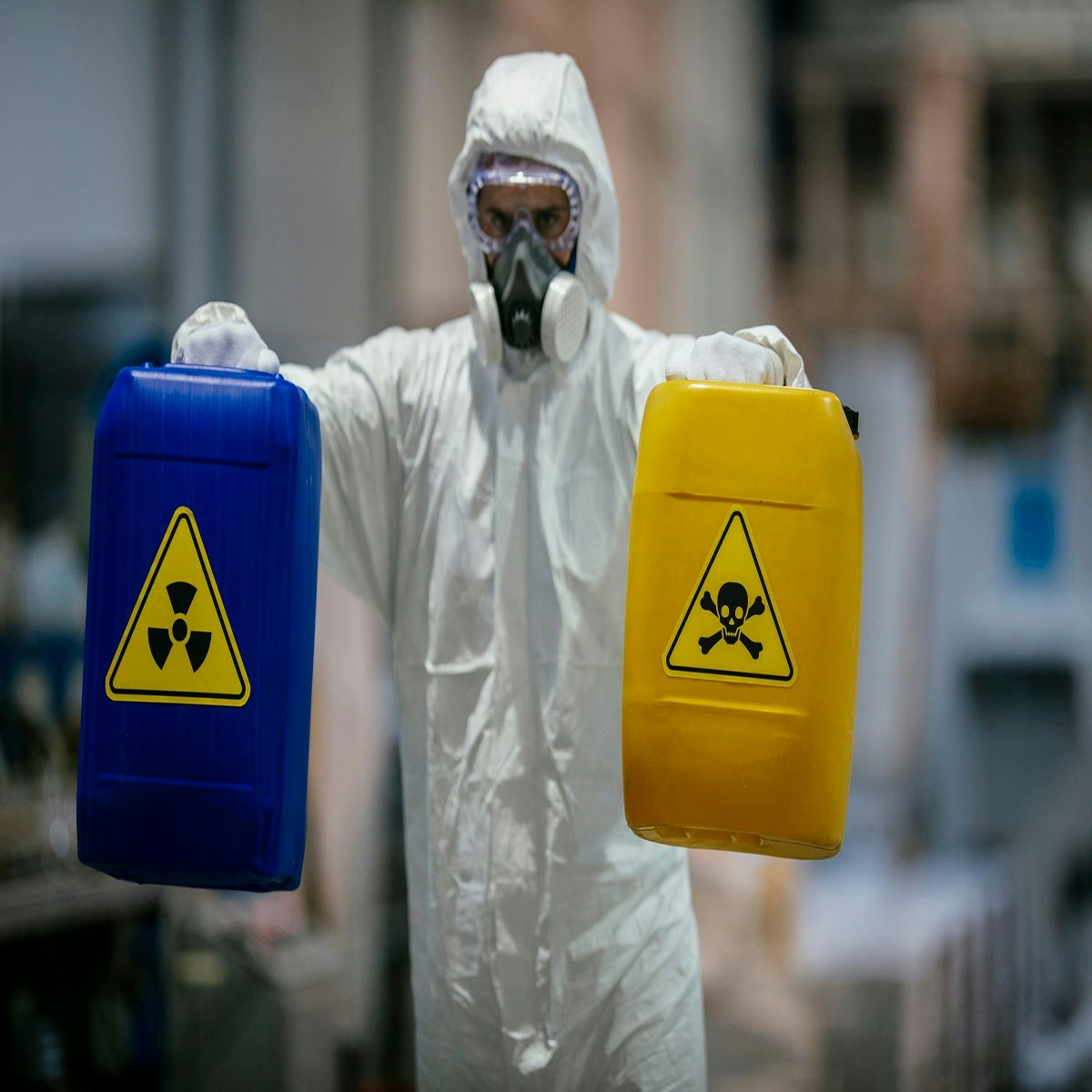Risk Assessor
Risk Assessor: Navigating Uncertainty in the Modern World
A Risk Assessor is a professional who identifies, analyzes, and evaluates potential risks that could negatively impact an organization, project, individual, or the environment. They play a critical role in helping entities understand the uncertainties they face and make informed decisions to mitigate potential harm or loss. This involves looking at various types of risks, from financial instability and operational disruptions to safety hazards and environmental concerns.
Working as a Risk Assessor can be highly engaging. It often involves deep analytical thinking, akin to solving complex puzzles where the pieces are data points, potential scenarios, and human factors. Assessors get to delve into diverse industries and situations, requiring continuous learning. Furthermore, their work directly contributes to protecting assets, ensuring safety, and maintaining the stability and resilience of organizations and communities, providing a strong sense of purpose.
Key Responsibilities of a Risk Assessor
The core functions of a Risk Assessor revolve around understanding and managing uncertainty. This requires a blend of analytical rigor, foresight, and effective communication.
Identifying Potential Risks
The first step in the process is recognizing what could go wrong. Risk Assessors systematically scan the internal and external environment to pinpoint potential threats. This includes examining financial vulnerabilities like market fluctuations or credit defaults, operational issues such as supply chain disruptions or equipment failure, and safety or environmental hazards like workplace accidents or pollution events.
This identification process isn't just about listing obvious dangers. It involves creative thinking to anticipate less apparent threats, considering interactions between different factors, and understanding the specific context of the organization or system being assessed. Historical data, checklists, brainstorming sessions, and expert consultations are common tools used in this phase.
Understanding the nature of hazards, especially chemical or environmental ones, is crucial in many sectors. Proper identification lays the groundwork for effective analysis and control.
These courses offer foundational knowledge in identifying specific types of hazards, particularly in industrial and environmental contexts.
Analyzing Risks
Once potential risks are identified, they must be analyzed to understand their potential impact and likelihood. Risk Assessors employ both quantitative and qualitative methods. Quantitative analysis involves assigning numerical values to risks, often using statistical data, financial modeling, or probability calculations to estimate potential losses or frequencies.
Qualitative analysis, on the other hand, relies on descriptive scales (like high, medium, low) based on judgment, experience, and expert opinion. This is often used when numerical data is scarce or unreliable, or to assess intangible impacts like reputational damage. Both approaches aim to prioritize risks, focusing attention on the most significant threats.
Data is the lifeblood of risk analysis. Assessors need strong analytical skills to interpret data, identify patterns, and build predictive models. The goal is to transform raw information into actionable insights about the risk landscape.
Developing Mitigation Strategies
Identifying and analyzing risks is only part of the job; the ultimate goal is to manage them. Risk Assessors work with stakeholders to develop strategies for mitigating, transferring, accepting, or avoiding identified risks. Mitigation might involve implementing new safety procedures, investing in backup systems, or changing operational processes.
Risk transfer often involves insurance or contractual agreements. Risk acceptance might be appropriate for low-impact or low-probability risks where the cost of mitigation outweighs the potential loss. Avoidance means deciding not to proceed with an activity or project deemed too risky.
The assessor's role here is often consultative, providing recommendations based on their analysis and evaluating the cost-effectiveness of different control measures. They help decision-makers weigh the trade-offs between risk reduction and operational or financial objectives.
Developing effective strategies requires understanding how projects are managed and how risks impact their lifecycle.
Compliance and Reporting
Many industries are subject to regulations regarding risk management and safety. Risk Assessors must stay informed about relevant laws, standards, and guidelines (like OSHA in the US, or specific financial regulations). Ensuring organizational compliance is often a key responsibility.
This involves documenting the risk assessment process, findings, and mitigation plans. Assessors prepare reports for management, regulatory bodies, auditors, and other stakeholders. Clear and concise communication is vital to ensure that complex risk information is understood and acted upon.
Effective reporting helps maintain transparency, demonstrates due diligence, and supports ongoing monitoring and review of the risk management framework. It's a crucial link between analysis and action.
Industries and Sectors Employing Risk Assessors
Risk Assessors are vital across a wide spectrum of industries, reflecting the universal need to manage uncertainty. Their expertise is applied differently depending on the sector's specific challenges and regulatory environment.
Traditional Strongholds: Finance, Insurance, and Healthcare
The finance and insurance sectors are perhaps the most traditional employers of risk professionals. Financial Risk Assessors evaluate credit risk, market risk, liquidity risk, and operational risk within banks, investment firms, and other financial institutions. Insurance companies rely heavily on actuaries and risk assessors to calculate premiums based on the likelihood and cost of events like accidents, illnesses, or natural disasters.
In healthcare, risk assessment focuses on patient safety, clinical trial risks, operational efficiency, data privacy (HIPAA compliance), and financial stability of healthcare providers. Identifying potential medical errors, infection control risks, or hazards associated with medical devices are critical functions.
These sectors often have mature risk management frameworks driven by stringent regulations and the high financial stakes involved.
These resources provide deeper dives into financial risk management and the intersection of health and environmental factors, relevant to these traditional sectors.
Government and Public Policy Roles
Governments at all levels employ risk assessors to inform public policy and manage public resources effectively. This can range from assessing risks associated with infrastructure projects (like bridges or dams) to evaluating environmental hazards, public health threats (like pandemics), or national security concerns.
Risk assessment informs decisions about resource allocation, regulatory standards, and emergency preparedness plans. For example, environmental agencies assess the risks of pollutants, while transportation departments evaluate road safety risks. Public sector risk assessment often balances economic factors with public safety and welfare.
The focus here is often on societal impact and long-term resilience, requiring a broad understanding of social, economic, and environmental systems.
Emerging and Growing Sectors
New frontiers for risk assessment are constantly emerging. Cybersecurity risk is a major growth area, with assessors identifying vulnerabilities to data breaches, ransomware attacks, and system disruptions across all industries. Specialized courses help build skills in this domain.
Climate risk assessment is another rapidly expanding field, focusing on the physical risks of climate change (like extreme weather) and transition risks (related to shifting to a low-carbon economy). Supply chain risk assessment gained prominence after recent global disruptions, analyzing vulnerabilities related to suppliers, logistics, and geopolitical events.
Technology companies also employ risk assessors to evaluate risks associated with new product development, data privacy, and artificial intelligence ethics. These emerging areas often require adapting traditional risk methodologies to novel challenges.
Global Demand and Variations
The demand for Risk Assessors exists globally, but the specific focus can vary. Developed economies often have more mature regulatory frameworks driving demand in finance and insurance. Developing nations might prioritize risks related to infrastructure development, environmental protection, and public health.
Geopolitical instability, climate change impacts, and globalized supply chains mean that risks are increasingly interconnected. This drives a need for assessors who can understand complex global systems and tailor their analysis to different regional contexts and standards.
International organizations and multinational corporations often require risk professionals with cross-cultural understanding and familiarity with varying international regulations and risk landscapes.
Essential Skills and Competencies
Becoming a successful Risk Assessor requires a specific blend of technical expertise, analytical ability, and soft skills. These competencies allow professionals to navigate complex data, anticipate potential issues, and communicate findings effectively.
Analytical and Quantitative Prowess
At its core, risk assessment involves analyzing data to understand probabilities and impacts. Strong quantitative skills are essential, including proficiency in statistics, probability theory, and potentially financial mathematics depending on the sector. Assessors need to be comfortable working with large datasets.
Familiarity with data analysis software is crucial. This often includes spreadsheet programs like Microsoft Excel for basic analysis and visualization, statistical software packages like R or SAS, and potentially specialized modeling software used in specific industries (e.g., financial risk modeling platforms).
The ability to build, interpret, and critique mathematical models used to forecast risk scenarios is a highly valued skill in this field. Continuous learning is often required to keep up with evolving analytical techniques.
Effective Communication Skills
Risk Assessors must translate complex technical findings into clear, concise language that non-experts can understand. This involves communicating with diverse audiences, including senior management, technical teams, regulators, and sometimes the public.
Strong writing skills are needed for preparing reports, policy documents, and presentations. Equally important are verbal communication and presentation skills for explaining methodologies, justifying conclusions, and facilitating discussions about risk tolerance and mitigation strategies.
The ability to listen actively to stakeholders, understand their concerns, and build consensus around risk management decisions is also critical for ensuring that assessments lead to meaningful action.
Critical Thinking and Scenario Planning
Risk assessment isn't just about crunching numbers; it requires critical thinking to question assumptions, identify potential biases in data or models, and evaluate the quality of information. Assessors need to think systemically, understanding how different risks might interact.
Scenario planning is a key technique. This involves imagining plausible future situations (both positive and negative) and assessing how the organization or system would fare. It requires creativity, foresight, and the ability to think beyond historical patterns.
Problem-solving skills are paramount, as assessors are often tasked with finding practical solutions to complex risk challenges, balancing competing priorities like cost, efficiency, and safety.
Developing robust problem-solving and decision-making frameworks is key to effective risk management.
Industry-Specific Technical Knowledge
While core risk assessment principles are transferable, deep expertise often requires understanding the specific context of the industry. A financial risk assessor needs knowledge of financial markets and instruments, while an environmental risk assessor needs understanding of ecology, toxicology, and environmental regulations.
Similarly, assessing risks in construction requires knowledge of building codes and site safety practices, while cybersecurity risk assessment demands understanding of network protocols, threat vectors, and security technologies. This domain expertise allows assessors to identify relevant risks and evaluate potential impacts more accurately.
Acquiring this knowledge often comes through formal education in a relevant field, on-the-job training, industry certifications, and continuous professional development, including specialized online courses found on platforms like OpenCourser.
These courses and books provide insights into specific domains like toxicology and environmental health, illustrating the need for specialized knowledge.
Tools and Techniques in Modern Risk Assessment
The field of risk assessment continually evolves, incorporating new technologies and refining established methodologies. Modern practitioners utilize a diverse toolkit to identify, analyze, and manage risks more effectively.
Predictive Modeling with AI and Machine Learning
Artificial intelligence (AI) and machine learning (ML) are increasingly used in risk assessment, particularly for predictive modeling. These technologies can analyze vast amounts of data to identify subtle patterns, predict future events (like equipment failure or market movements), and automate aspects of risk identification.
For example, ML algorithms can detect fraudulent transactions, predict credit defaults, or identify emerging cybersecurity threats much faster than traditional methods. While powerful, using AI/ML also introduces new challenges, such as ensuring model transparency, managing bias, and interpreting complex outputs.
ELI5: Imagine AI as a super-smart detective that can look at millions of clues (data points) instantly. It learns patterns from past events to predict what might happen next, like guessing if a specific online purchase might be fraudulent based on thousands of similar past purchases.
Risk Frameworks and Visualizations
Structured frameworks help organize the risk assessment process. Risk matrices and heat maps are common visualization tools. A risk matrix typically plots the likelihood of a risk occurring against its potential impact, helping to prioritize risks visually.
Heat maps use color-coding (e.g., red for high risk, green for low risk) to provide an intuitive overview of the risk landscape. These tools facilitate communication with stakeholders by presenting complex information in an easily digestible format.
Other frameworks might involve detailed checklists, fault tree analysis (tracing potential system failures), or event tree analysis (mapping consequences of an initial event). The choice of framework depends on the complexity of the system and the goals of the assessment.
Simulation Methods
When dealing with uncertainty, simulation techniques like Monte Carlo simulation are invaluable. This method uses random sampling to model the range of possible outcomes for complex systems where many variables are uncertain.
For instance, in project management, Monte Carlo simulation can estimate the probability of finishing a project within budget and on schedule by considering uncertainties in task durations and costs. In finance, it can model potential investment portfolio returns under various market conditions.
ELI5: Think of Monte Carlo simulation like rolling dice thousands of times to see all the possible outcomes of a game. Instead of dice, risk assessors use computers to simulate thousands of possible futures for a project or investment, based on the known uncertainties, to understand the overall range of possibilities.
These resources delve into the practical application of risk management principles in project settings, where simulations and frameworks are often used.
Standards and Guidelines
International and industry-specific standards provide common language and best practices for risk management. ISO 31000 is a widely recognized international standard offering principles and generic guidelines for managing risk applicable to any organization.
Other standards might be sector-specific, such as COSO (Committee of Sponsoring Organizations of the Treadway Commission) frameworks often used for internal controls and financial risk, or specific safety standards within engineering or healthcare. Adhering to these standards helps ensure consistency, comparability, and thoroughness in risk assessment processes.
Familiarity with relevant standards is often expected of risk professionals and can be crucial for regulatory compliance and demonstrating effective governance.
Formal Education Pathways
Embarking on a career as a Risk Assessor typically involves specific educational foundations, though multiple pathways exist. Continuous learning is also a hallmark of the profession, given its evolving nature.
Relevant Undergraduate Degrees
A bachelor's degree is generally the minimum requirement. Common fields include Finance, Economics, Business Administration, Statistics, Mathematics, or Engineering (especially Chemical, Civil, or Industrial). Degrees in Environmental Science, Public Health, or Computer Science can also provide strong foundations, particularly for specialized risk areas.
These programs equip students with essential analytical, quantitative, and problem-solving skills. Coursework in probability, statistics, data analysis, and domain-specific subjects (like finance principles or environmental regulations) is particularly valuable. Explore relevant degree programs and foundational courses using OpenCourser's browsing features.
Choosing a major often depends on the industry one aims to enter. An engineering background might suit operational or safety risk roles, while finance or economics is ideal for financial risk assessment.
Specialized Master's Programs and PhD Research
For more specialized or senior roles, a master's degree can be highly beneficial. Programs specifically in Risk Management, Financial Engineering, Data Science, Actuarial Science, Environmental Management, or Public Health offer advanced knowledge and skills.
These programs often delve deeper into quantitative modeling techniques, specific regulatory environments, and advanced risk theories. Some universities offer concentrations within MBA programs focused on risk management.
A PhD is typically pursued by those interested in academic research or highly specialized quantitative roles (e.g., developing novel risk models). Research areas might include risk theory, behavioral economics influencing risk perception, advanced simulation techniques, or the intersection of risk with fields like climate science or artificial intelligence.
Professional Certifications
Certifications can significantly enhance career prospects by demonstrating specialized expertise and commitment to the profession. Some well-regarded certifications include:
- FRM (Financial Risk Manager): Offered by GARP (Global Association of Risk Professionals), highly valued in finance.
- PRM (Professional Risk Manager): Offered by PRMIA (Professional Risk Managers' International Association), also prominent in finance.
- CRISC (Certified in Risk and Information Systems Control): Offered by ISACA, focuses on IT and cybersecurity risk.
- CRM (Certified Risk Manager): Offered by The National Alliance for Insurance Education & Research, common in insurance and general enterprise risk.
- ARM (Associate in Risk Management): Offered by The Institutes, also common in insurance and broader risk management.
These certifications typically require passing rigorous exams and often necessitate relevant work experience. Pursuing certification can be a valuable step after gaining some initial experience in the field. You can often find information about these certifications directly from the issuing organizations, such as GARP for the FRM or ISACA for the CRISC.
The Role of Online Learning
Online courses offer flexible and accessible ways to build foundational knowledge, acquire specific skills, or supplement formal education. Platforms like OpenCourser aggregate thousands of courses covering statistics, data analysis, specific software tools (Python, R, Excel), industry-specific topics (like environmental regulations or financial derivatives), and risk management principles.
For career changers, online courses can provide an entry point to understand the field and develop necessary competencies without committing to a full degree program immediately. Professionals can use them for continuous learning, staying updated on new techniques like AI in risk assessment or specific regulations. You can even create personalized learning paths by saving relevant courses to your list using OpenCourser's list feature.
Completing online courses, especially those offering certificates, can demonstrate initiative and relevant skills to potential employers. Combining online learning with practical projects or case studies can further solidify understanding and build a portfolio. Our Learner's Guide offers tips on how to effectively use online courses for career development.
These courses cover toxicology and environmental aspects, showcasing the specialized knowledge available through online platforms.
Career Progression for Risk Assessors
A career in risk assessment offers diverse paths for growth and specialization. Progression typically involves gaining experience, developing deeper expertise, and potentially moving into leadership or related fields.
Starting Out: Analyst Roles
Entry-level positions often carry titles like Risk Analyst, Junior Risk Assessor, or Compliance Analyst. Responsibilities typically involve gathering and analyzing data, assisting senior assessors with modeling and reporting, researching regulations, and maintaining risk documentation.
These roles provide essential hands-on experience with risk assessment methodologies, tools, and the specific context of the industry. It's a crucial phase for building foundational skills and understanding the practical application of risk principles.
New entrants focus on learning the ropes, developing technical proficiency, and understanding the organization's risk appetite and framework. Strong analytical and communication skills are key from the start.
Mid-Career Growth and Specialization
With experience, assessors often specialize in specific types of risk (e.g., credit risk, operational risk, cybersecurity risk, environmental risk) or industries. Titles might evolve to Senior Risk Analyst, Risk Specialist, or Risk Manager.
Responsibilities increase to include leading risk assessments, developing more complex models, designing mitigation strategies, presenting findings to management, and potentially mentoring junior staff. This stage often involves taking ownership of specific risk areas or projects.
Pursuing relevant certifications (like FRM, CRISC) often occurs at this stage to validate expertise and support career advancement. Specialization allows for deeper impact and higher value within an organization.
These books cover various facets of risk management, suitable for professionals looking to deepen their expertise.
Leadership Roles and Consultancy
Experienced risk professionals may advance to senior leadership positions like Director of Risk Management or Chief Risk Officer (CRO). These roles involve setting the overall risk strategy for the organization, overseeing the entire risk function, advising the board of directors, and integrating risk management into strategic decision-making.
Alternatively, many experienced assessors move into consultancy. Risk consultants work with various clients across different industries, providing expert advice on risk assessment, framework development, and mitigation strategies. This path offers variety and exposure to diverse challenges.
Leadership roles require strong strategic thinking, influencing skills, and a deep understanding of the business and its operating environment. Consultancy demands excellent problem-solving abilities and client management skills.
Transition Opportunities to Adjacent Fields
The skills developed as a Risk Assessor are highly transferable. Professionals may pivot into related fields such as:
- Compliance: Focusing specifically on ensuring adherence to laws and regulations.
- Audit: Evaluating internal controls and processes, often overlapping with operational risk.
- Data Science/Analytics: Leveraging strong quantitative skills for broader business intelligence or predictive analytics roles.
- Strategic Planning: Using risk insights to inform long-term business strategy.
- Insurance Underwriting: Assessing and pricing insurance risks.
- Investment Management: Analyzing market and credit risks within investment portfolios.
This flexibility makes risk assessment a solid foundation for various analytical and strategic careers.
Ethical Challenges in Risk Assessment
Risk assessment is not merely a technical exercise; it involves judgments and decisions with significant ethical implications. Practitioners must navigate complex situations where competing values are often at play.
Bias in Risk Modeling and Data
Risk models are built on data and assumptions, both of which can harbor biases. Historical data might reflect past discrimination, leading models to perpetuate inequities (e.g., biased loan application assessments). Assumptions made during model development can also introduce subtle biases.
Ethical assessors must be vigilant in identifying potential sources of bias in their data and models. This requires critical examination of inputs, transparency about model limitations, and efforts to ensure fairness and equity in outcomes.
Failure to address bias can lead to unfair decisions, reinforce social inequalities, and damage organizational reputation.
Balancing Profit, Safety, and Public Good
Assessors often face situations where enhancing safety or protecting the environment might conflict with maximizing profits or achieving operational goals. For instance, recommending costly safety upgrades or advising against a potentially profitable but environmentally risky project.
Navigating these trade-offs requires a strong ethical compass and the ability to clearly articulate the potential consequences of different decisions. The assessor's role is to provide objective analysis, but organizational pressures can create ethical dilemmas.
Professional codes of conduct often emphasize the primacy of public safety and welfare, guiding assessors in these difficult situations.
Understanding the broader context of environmental health and societal impact is crucial for ethical decision-making.
Transparency, Communication, and Whistleblowing
Ethical risk assessment demands transparency about methodologies, uncertainties, and potential impacts. However, organizations may sometimes wish to downplay or conceal certain risks from stakeholders or the public.
Assessors have an ethical responsibility to communicate risks clearly and honestly, even when the information is unwelcome. In extreme cases where significant harm is being concealed or ignored internally, assessors might face the difficult decision of whether to become a whistleblower, reporting concerns to external regulators or authorities.
This raises complex questions about loyalty to one's employer versus broader responsibilities to public safety or ethical principles.
The role of media and communication in shaping public perception of risk adds another layer of complexity.
Global versus Local Ethical Standards
For assessors working in multinational corporations or on international projects, navigating differing ethical norms and regulatory standards across regions presents a challenge. What is considered acceptable risk or standard practice in one country might be unethical or illegal in another.
Determining which standards to apply (e.g., home country standards, host country standards, or universal ethical principles) requires careful consideration. Issues like labor practices, environmental protection, and bribery risks can vary significantly.
Ethical global risk assessment involves sensitivity to cultural context while upholding core principles of integrity, safety, and fairness.
Frequently Asked Questions
Here are answers to some common questions about pursuing a career as a Risk Assessor.
Q: Is professional certification mandatory to become a Risk Assessor?
A: Certification is generally not mandatory for entry-level positions, but it becomes increasingly valuable, and sometimes expected, for mid-career and senior roles, especially in regulated industries like finance and insurance. Certifications like FRM, CRISC, or CRM demonstrate specialized knowledge and commitment, enhancing credibility and career prospects. Requirements often include passing exams and having relevant work experience.
Q: How is automation impacting job prospects for Risk Assessors?
A: Automation and AI are changing the field, not necessarily eliminating jobs. Routine data collection and basic analysis tasks are becoming more automated, freeing up assessors to focus on more complex analysis, strategic thinking, communication, and interpretation of model outputs. Skills in working with data, understanding AI/ML models, and applying critical judgment are becoming more important. The demand for skilled assessors who can navigate complex, novel risks (like cybersecurity or climate risk) remains strong.
Q: What are typical salary ranges for Risk Assessors?
A: Salary varies significantly based on experience, industry, location, education, and certifications. Entry-level Risk Analysts might start in the range of $60,000 - $80,000 USD. Mid-career professionals (Risk Managers/Specialists) can earn $90,000 - $150,000+ USD. Senior leaders like CROs or specialized consultants can command salaries well above $200,000 USD. Sectors like finance and technology often offer higher compensation. You can find more specific data from sources like the U.S. Bureau of Labor Statistics (often under related titles like Financial Analysts, Management Analysts, or Information Security Analysts) or industry salary surveys.
Q: Are there freelance or consulting opportunities for Risk Assessors?
A: Yes, particularly for experienced professionals. Many organizations hire risk consultants for specific projects, independent assessments, or specialized expertise they lack in-house. Industries undergoing significant change (like adapting to new regulations or technologies) often seek external consulting support. Building a strong track record, network, and potentially a specialization is key to success as an independent consultant.
Q: What skills learned as a Risk Assessor are transferable to other careers?
A: Risk assessment develops a highly valuable and transferable skill set. Key transferable skills include: data analysis and interpretation, quantitative modeling, critical thinking, problem-solving, strategic planning, project management, regulatory compliance understanding, and communication (both written and verbal) of complex information. These skills are sought after in fields like general management, business analysis, data science, finance, compliance, audit, and strategic consulting.
Q: What is the typical day-to-day work environment like?
A: The daily work can vary greatly. It often involves a mix of independent analytical work (analyzing data, building models, writing reports) and collaborative activities (meetings with stakeholders, presenting findings, participating in project teams). Much of the work is office-based, involving computer use for analysis and communication. Depending on the role, some travel might be required for site assessments (e.g., environmental or operational risk) or client meetings (for consultants).
Embarking on a career as a Risk Assessor offers a path filled with intellectual challenges and meaningful impact. It requires dedication to continuous learning and a commitment to analytical rigor and ethical practice. Whether you are just starting your career exploration or considering a pivot, the field provides diverse opportunities across numerous sectors. By leveraging educational resources, including the vast array of online courses available through OpenCourser, and developing the necessary skills, you can position yourself for a rewarding journey in navigating and managing the uncertainties of our complex world.












